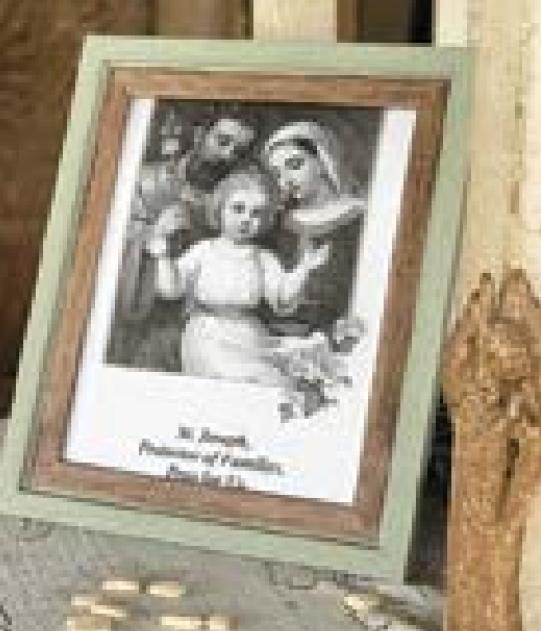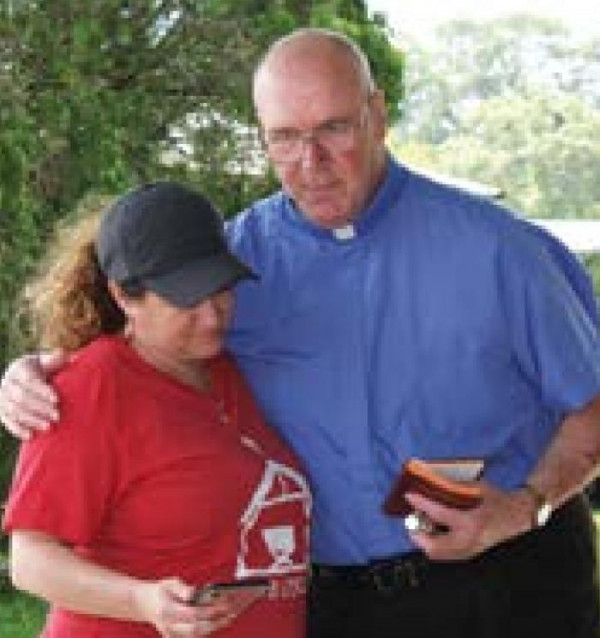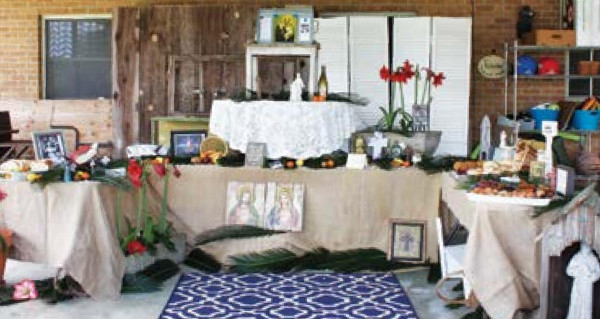Blessing Home & Bounty


Daily News photos by Stacey Fontenot


One local woman took it upon herself to arrange a St. Joseph’s Altar, or la tavola di San Giuseppe, for those who wished to join others in prayer. Daily News photo by Stacey Fontenot
With churches shuttered and gatherings of any kind being discouraged, Christians are missing their daily masses. One local woman took it upon herself to arrange a St. Joseph’s Altar, or la tavola di San Giuseppe, for those who wished to join others in prayer.
“I had a lot of friends and acquaintances that were sad because they have not been able to attend daily mass,” said organizer Nicole Z. Fuselier. “I, along with my friend Cassie Broussard, we felt this was one way we could help to lift their spirits.”
As history tells, presenting the altar is a way of being grateful for what has been provided.
“The St. Joseph’s Altar is an Italian Catholic family custom,” said Fuselier. “The tradition, dating back to the 1800’s, first started out of desperate times, such as now.”
She said at the time, Italy’s lands were barren from a drought, which led to a great famine.
“The people pleaded and consecrated their lands to St. Joseph,” Fuselier continued. “They prayed over their land and all of a sudden, rains came and their crops prospered.”
Deacon Mike Tramel was present to bless the home and the bounty before others arrived and he offered a bit of insight about the tradition.
“It began with a few Italian families but it has now spread to most Christian populations. This was their way of showing thanks,” said Tramel. “With the situation being what it is today, the mass or the Eucharist, means thanksgiving. To participate in that bodily or spiritually, we’re still called to give thanksgiving. Look at what all we have and what we enjoy, even in the worst of times.”
There are normally more than a few families who invite others to share in their crops, he said. Not only do they share the food but also fellowship and worship.
“What normally happens, everyone who is able to, contributes and whatever is left over is given as charity to the needy,” said Fuselier.
The altar was built in three tiers, with St. Joseph and the holy family positioned on the highest level. Breads, fruits, vegetables and cakes were arranged all around.
“Each item holds its own meaning,” she said. “Once blessed, the fava beans represent luck. If one were to swipe a lemon, they would find a husband or wife. Or for those battling infertility, the seeds of the lemon or a pomegranate can help resolve those issues. Some believe in taking a piece of the blessed bread and freezing it. As a hurricane approaches, the bread crumbs can be distributed around the home and yard for protection against the storm.”
There are many variations of what each adornment could mean, Tramel said.
Fuselier said she felt led to provide this for others since she had the resources to do so. The meeting was held outdoors so people did not have to worry about close contact with others.
“This was something that God placed on my heart to do,” Fuselier said. “My faith and dedication to my Catholic religion is unwavering. I felt compelled to provide this for others to participate in, even though we have been discouraged from hosting any kind of gathering. I answered the call of what I felt was the right thing to do.”
Attendee Jackie Prejean said she has always prayed to St. Joseph for protection and those prayers have yet to ever fail her.
“He reigns over us. We will make it through this,” said Prejean. “I have that faith in Him.”
The event was held on Thursday, March 19, which is when New Orleans Catholics celebrate St. Joseph’s Day by constructing elaborate altars to honor the relief St. Joseph provided during the famine in Sicily.
